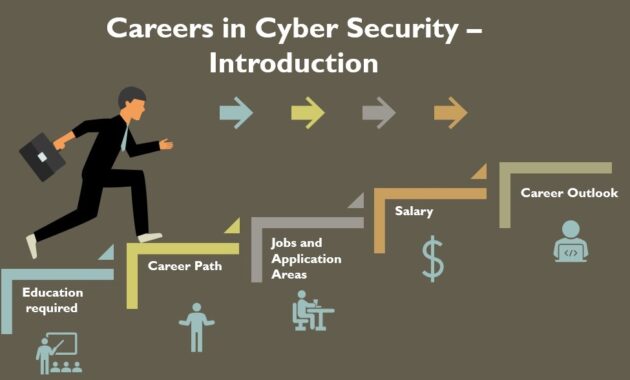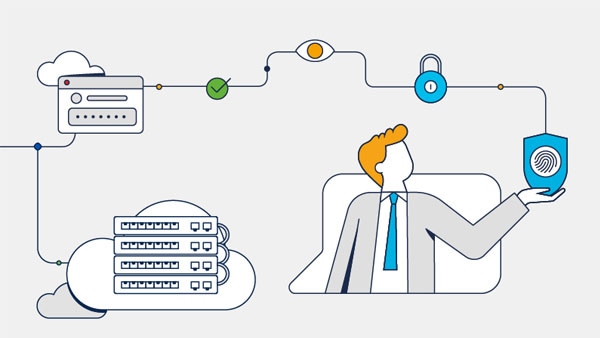“Explore the benefits, job opportunities, and career prospects in cybersecurity. Discover if a cybersecurity career is the right choice for you with insights on salary potential, industry growth, and required skills.”
Introduction
In today’s digital age, cybersecurity has become a crucial aspect of protecting sensitive information and ensuring the safety of digital infrastructures. With the increasing frequency of cyber-attacks and data breaches, the demand for cybersecurity professionals is higher than ever. But the question remains: Is cybersecurity actually a good career? Let’s explore the various aspects of this field to help you decide if it’s the right career choice for you.
Cybersecurity Career Prospects
The cybersecurity industry is experiencing rapid growth, driven by the ever-evolving landscape of cyber threats. According to the Bureau of Labor Statistics, employment in the cybersecurity sector is projected to grow 31% from 2019 to 2029, much faster than the average for all occupations. This growth is fueled by the increasing need for organizations to protect their digital assets and comply with regulatory requirements.

Benefits of a Cybersecurity Career
A career in cybersecurity offers numerous benefits, including:
- High Demand: With the rise in cyber threats, there is a significant demand for skilled cybersecurity professionals.
- Job Security: The constant need for cybersecurity measures ensures a stable and secure job market.
- Lucrative Salaries: Cybersecurity professionals often enjoy competitive salaries, with opportunities for growth and advancement.
- Variety of Roles: The field offers diverse career paths, from ethical hacking to security analysis and beyond.
- Continuous Learning: Cybersecurity is a dynamic field that requires continuous learning and skill development.
Cybersecurity Job Opportunities
The cybersecurity job market is vast and varied, offering numerous opportunities for those with the right skills and qualifications. Some common job roles in cybersecurity include:
- Security Analyst: Monitors and protects an organization’s networks and systems.
- Ethical Hacker: Identifies and exploits vulnerabilities in systems to help organizations strengthen their defenses.
- Security Consultant: Provides expert advice on security measures and best practices.
- Incident Responder: Handles and mitigates cyber incidents and breaches.
- Security Architect: Designs and implements secure network solutions.

Cybersecurity Salary Potential
One of the most attractive aspects of a cybersecurity career is the potential for high earnings. According to PayScale, the average salary for a cybersecurity analyst in the United States is around $76,000 per year. Senior roles, such as cybersecurity managers or chief information security officers (CISOs), can command salaries well into the six-figure range.
Skills Needed for Cybersecurity
A successful career in cybersecurity requires a mix of technical and soft skills, including:
- Technical Skills: Knowledge of networks, systems, and security protocols is essential.
- Problem-Solving: The ability to analyze and resolve complex security issues.
- Attention to Detail: Precision is crucial in identifying vulnerabilities and threats.
- Communication: Effective communication skills to explain security measures to non-technical stakeholders.
- Continuous Learning: Staying updated with the latest trends and threats in cybersecurity.
Cybersecurity Certifications and Training Programs
Obtaining relevant certifications can significantly enhance your career prospects in cybersecurity. Some popular certifications include:
- Certified Information Systems Security Professional (CISSP)
- Certified Ethical Hacker (CEH)
- CompTIA Security+
- Certified Information Security Manager (CISM)
- Certified Information Systems Auditor (CISA)
Many training programs and boot camps are available to help you prepare for these certifications and gain practical experience.

Cybersecurity Career Development and Future Outlook
The future of cybersecurity careers looks promising, with continued growth and new opportunities emerging as technology evolves. As organizations increasingly rely on digital solutions, the need for robust cybersecurity measures will only intensify. This ongoing demand ensures that cybersecurity professionals will remain in high demand for the foreseeable future.
Challenges in a Cybersecurity Career
While a career in cybersecurity offers many advantages, it also comes with its challenges:
- Stressful Work Environment: The high stakes and constant threat of cyber attacks can create a stressful work environment.
- Continuous Learning: The ever-changing nature of cyber threats requires ongoing education and skill development.
- High Responsibility: Protecting sensitive information and systems places significant responsibility on cybersecurity professionals.
Conclusion
So, is cybersecurity actually a good career? The answer largely depends on your interests and aptitudes. If you are passionate about technology, enjoy problem-solving, and are willing to continuously learn and adapt, then a career in cybersecurity could be incredibly rewarding. With high demand, job security, and lucrative salaries, it is certainly a field worth considering for a dynamic and impactful career.

Examples and Statistics
- Example: Jane Doe, a cybersecurity analyst, transitioned from a background in IT to cybersecurity and saw a 30% increase in her salary within the first year.
- Statistic: According to Cybersecurity Ventures, there will be 3.5 million unfilled cybersecurity jobs globally by 2021, highlighting the immense demand for professionals in this field.
- Quote: “Cybersecurity is not just a career choice; it’s a commitment to protecting our digital future.” – John Smith, Cybersecurity Expert.
Embarking on a cybersecurity career can open doors to numerous opportunities and provide a fulfilling and challenging professional journey.
